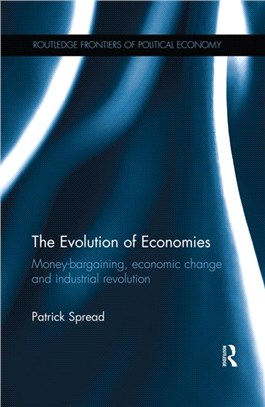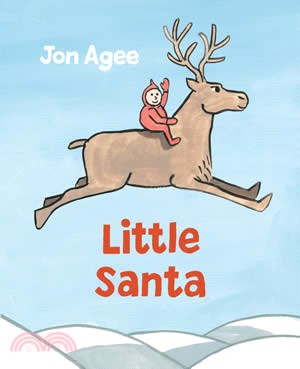The Evolution of Economies:Money-bargaining, economic change and industrial revolution
商品資訊
ISBN13:9780367668556
出版社:PBKTYFRL
作者:Patrick (Oxford University Spread London Business School.)
出版日:2020/09/30
裝訂/頁數:平裝/336頁
規格:15.6cm*23.4cm (高/寬)
定價
:NT$ 2519 元優惠價
:90 折 2267 元
無庫存,下單後進貨(到貨天數約45-60天)
下單可得紅利積點:68 點
商品簡介
相關商品
商品簡介
It is clear even to casual observation that economies evolve from year to year and over centuries. Yet mainstream economic theory assumes that economies always move towards equilibrium. One consequence of this is that mainstream theory is unable to deal with economic history.
The Evolution of Economies provides a clear account of how economies evolve under a process of support-bargaining and money-bargaining. Both support-bargaining and money-bargaining are situation-related - people determine their interests and actions by reference to their present circumstances. This gives the bargaining system a natural evolutionary dynamic.
Societies evolve from situation to situation. Historical change follows this evolutionary course. A central chapter of the book applies the new theory in a re-evaluation of the industrial revolution in Britain, showing how specialist money-bargaining agencies, in the form of companies, evolved profitable formats and displaced landowners as the leading sources of employment and economic necessities.
Companies took advantage of the evolution of technology to establish effective formats. The book also seeks to establish how it came about that a 'mainstream' theory was developed that is so wildly at odds with the observable features of economic history and economic exchange. Theory-making is described as a process of 'intellectual support-bargaining' in which theory is shaped to the interests of its makers.
The work of major classical and neoclassical economists is contested as incompatible with the idea of an evolving money-bargaining system. The book reviews attempts to derive an evolutionary economic theory from Darwin's theory of evolution by natural selection. Neoclassical economic theory has had enormous influence on the governance of societies, principally through its theoretical endorsement of the benefits of 'free markets'.
An evolutionary account of economic processes should change the basis of debate. The theory presented here will be of interest immediately to all economists, whether evolutionary, heterodox or neoclassical. It will facilitate the work of economic historians, who complain that current theory gives no guidance for their historical investigations.
Beyond the confines of professional theory-making, many will find it a revelatory response to questions that have hitherto gone unanswered.
The Evolution of Economies provides a clear account of how economies evolve under a process of support-bargaining and money-bargaining. Both support-bargaining and money-bargaining are situation-related - people determine their interests and actions by reference to their present circumstances. This gives the bargaining system a natural evolutionary dynamic.
Societies evolve from situation to situation. Historical change follows this evolutionary course. A central chapter of the book applies the new theory in a re-evaluation of the industrial revolution in Britain, showing how specialist money-bargaining agencies, in the form of companies, evolved profitable formats and displaced landowners as the leading sources of employment and economic necessities.
Companies took advantage of the evolution of technology to establish effective formats. The book also seeks to establish how it came about that a 'mainstream' theory was developed that is so wildly at odds with the observable features of economic history and economic exchange. Theory-making is described as a process of 'intellectual support-bargaining' in which theory is shaped to the interests of its makers.
The work of major classical and neoclassical economists is contested as incompatible with the idea of an evolving money-bargaining system. The book reviews attempts to derive an evolutionary economic theory from Darwin's theory of evolution by natural selection. Neoclassical economic theory has had enormous influence on the governance of societies, principally through its theoretical endorsement of the benefits of 'free markets'.
An evolutionary account of economic processes should change the basis of debate. The theory presented here will be of interest immediately to all economists, whether evolutionary, heterodox or neoclassical. It will facilitate the work of economic historians, who complain that current theory gives no guidance for their historical investigations.
Beyond the confines of professional theory-making, many will find it a revelatory response to questions that have hitherto gone unanswered.
主題書展
更多
主題書展
更多書展今日66折
您曾經瀏覽過的商品
購物須知
外文書商品之書封,為出版社提供之樣本。實際出貨商品,以出版社所提供之現有版本為主。部份書籍,因出版社供應狀況特殊,匯率將依實際狀況做調整。
無庫存之商品,在您完成訂單程序之後,將以空運的方式為你下單調貨。為了縮短等待的時間,建議您將外文書與其他商品分開下單,以獲得最快的取貨速度,平均調貨時間為1~2個月。
為了保護您的權益,「三民網路書店」提供會員七日商品鑑賞期(收到商品為起始日)。
若要辦理退貨,請在商品鑑賞期內寄回,且商品必須是全新狀態與完整包裝(商品、附件、發票、隨貨贈品等)否則恕不接受退貨。
























